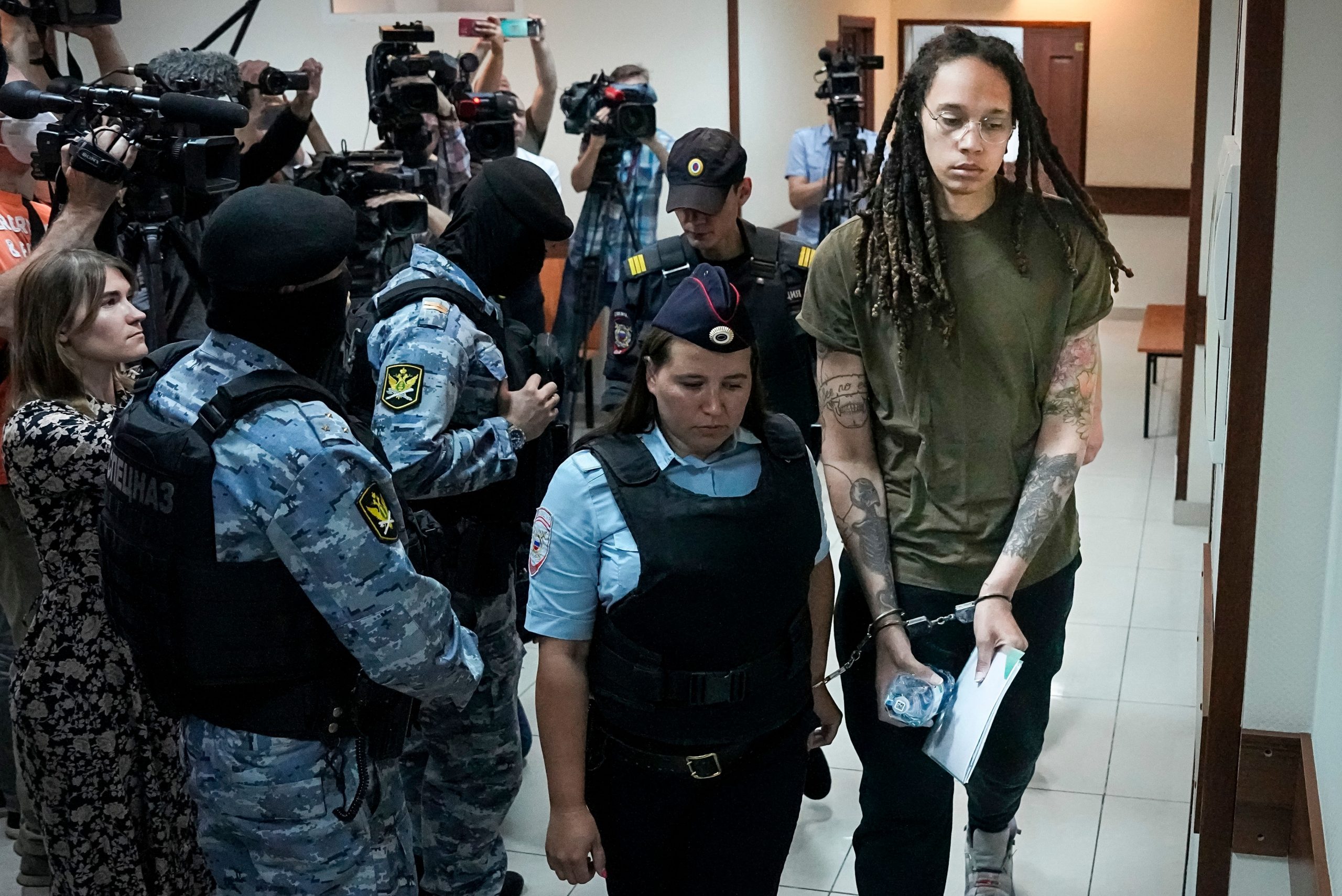Russian prosecutors on Thursday asked a court outside Moscow to sentence American basketball star Brittney Griner to 9 1/2 years in prison on cannabis possession charges.
Closing arguments in Griner’s trial were held on Thursday nearly six months after her arrest at a Moscow airport and subsequent detention in a case that has reached the highest levels of US-Russia diplomacy.
Also read: Amid war, Ukraine opens doors to same-sex civil unions
Although a conviction appears almost certain, given that Russian courts rarely acquit defendants and Griner has acknowledged having vape cartridges with cannabis oil in her luggage, judges have considerable latitude on sentencing.
Lawyers for the Phoenix Mercury center and two-time Olympic gold medalist have pursued strategies to bolster Griner’s contention that she had no criminal intent and that the canisters ended up in her luggage due to hasty packing.
Also read: US Senate approves Finland, Sweden NATO membership amid Russia-Ukraine conflict
They have presented character witnesses from the Russian team that she plays for in the WNBA off-season and written testimony from a doctor who said he prescribed her cannabis for pain treatment.
It’s not clear when the verdict will be announced. If she does not go free, attention will turn to the high-stakes possibility of a prisoner swap.
Also read: WNBA star Brittney Griner testifies in Russia drugs case
Before her trial began in July, the State Department designated her as “wrongfully detained,” moving her case under the supervision of its special presidential envoy for hostage affairs, effectively the government’s chief hostage negotiator.
Then last week, in an extraordinary move, US Secretary of State Antony Blinken spoke to his Russian counterpart, Sergey Lavrov, urging him to accept a deal under which Griner and Paul Whelan, an American imprisoned in Russia on an espionage conviction, would go free.
Also read: WNBA star Brittney Griner, in Russian prison, appeals to Joe Biden for help
Russian officials have scoffed at US statements about the case, saying they show a disrespect for Russian law. They remained poker-faced, urging Washington to discuss the issue through “quiet diplomacy without releases of speculative information.”







